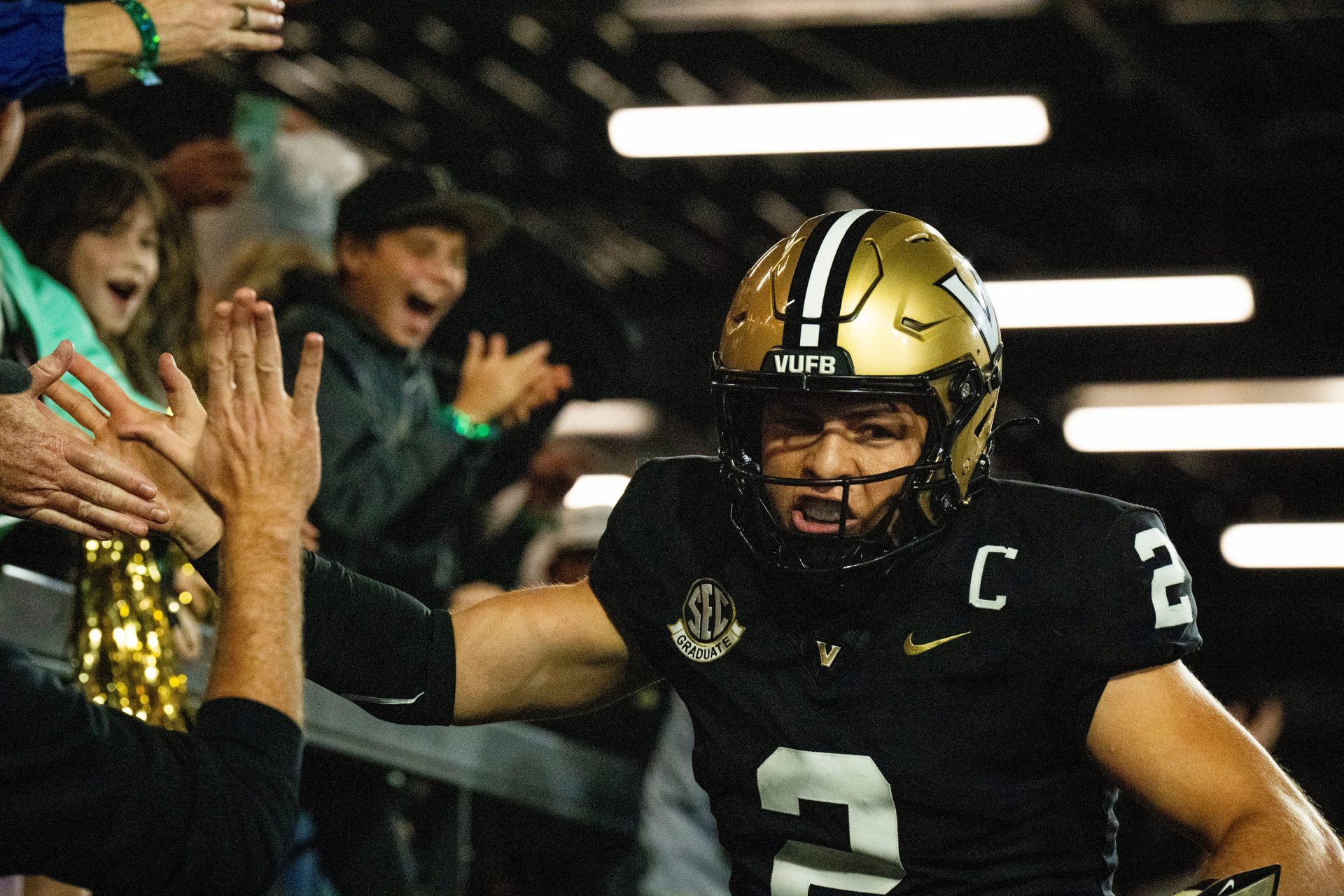Since transferring from New Mexico State, fifth-year quarterback Diego Pavia has propelled the Vanderbilt Commodores to one of their best seasons in program history. However, his midseason lawsuit against the NCAA cast uncertainty over his future — a mystery the court’s recent ruling has resolved.

Diego Pavia Wins Lawsuit Against the NCAA
On the field, Pavia led the ‘Dores to six wins, their most since 2018, and their first bowl appearance in seven years. But off the field, there were question marks.
Pavia filed a lawsuit claiming the NCAA’s policy of counting junior college (JUCO) seasons toward eligibility and the inability to redshirt after four years of play breaches antitrust law. It further argued that those restrictions cost athletes valuable NIL opportunities.
Pavia began his collegiate career at New Mexico Military Institute in 2020, leading the team to an NJCAA championship in his second season. In 2022, he took over as the starting QB with the New Mexico State Aggies, where he played for two years before transferring to Vanderbilt in January.
That’s five seasons of play, which typically isn’t allowed without a redshirt. Yet, the NCAA gave athletes affected by the 2020 pandemic an extra year of eligibility. Pavia sought a sixth, though, because he wasn’t allowed to redshirt in the JUCO system.
“Athletes playing football outside of the NCAA monopoly have no meaningful opportunity to profit off their name, image, or likeness,” the complaint states. “Even so, JUCO Eligibility Limitation Bylaws restrict the ability of athletes who begin their college football careers in junior colleges from having the same opportunity to profit from NIL as students who enter an NCAA institution as freshmen.
“Specifically, the JUCO Eligibility Bylaws limit athletes who begin their college careers at junior colleges to only two or three seasons of NCAA Division I football, as opposed to the four seasons of competition (and NIL Compensation opportunities) available to all other NCAA Division I football players.”
MORE: Simulate the College Football Season with CFN’s College Football Playoff Predictor
Pavia’s lawsuit also asked the court to review the Rule of Restitution, which could lead to penalties like vacated wins, postseason bans, loss of TV revenue, and financial sanctions if an ineligible athlete competes. The complaint included a declaration of support from Vanderbilt head coach Clark Lea.
“To make a temporary restraining order and preliminary injunction meaningful in this case, Pavia respectfully requests that the Court enjoin the NCAA’s application of the Rule of Restitution against Pavia, Vanderbilt University, or any other NCAA Division I college to which Pavia could transfer.”
On Wednesday, Dec. 18, 2024, the court granted Pavia’s preliminary injunction, allowing him another year of collegiate play. Although the injunction is limited to Pavia, as he was the only listed plaintiff, the court left room for other athletes to file similar suits, as the wording wasn’t centered around Pavia himself but the NCAA as a whole:
“The Court is not persuaded that restricting the NCAA Division I eligibility of former junior
college athletes to three or four years is relevant to the ‘differentiated athletic product’ of Division I football. The NCAA eligibility rules allow other forms of post-secondary education and athletic competition without it ‘counting’ against eligibility.
“Given the different treatment of other student-athletes with comparable or more post-secondary experience, the NCAA’s assertion that the eligibility rules are necessary to prevent age and experience disparities and preserve the quality of experience for student-athletes falls flat.”
We’ll see Pavia on our TV screens in 2025, but will it be with Vanderbilt? He put that speculation to rest with a decisive statement following the court’s ruling:
VANDY WE F*CKIN TURNT 💯 https://t.co/9qAcBUvtSK
— Diego Pavia (@diegopavia02) December 18, 2024
College Football Network has you covered with the latest from the ACC, Big Ten, Big 12, SEC, and every Group of Five conference and FBS Independent program.

